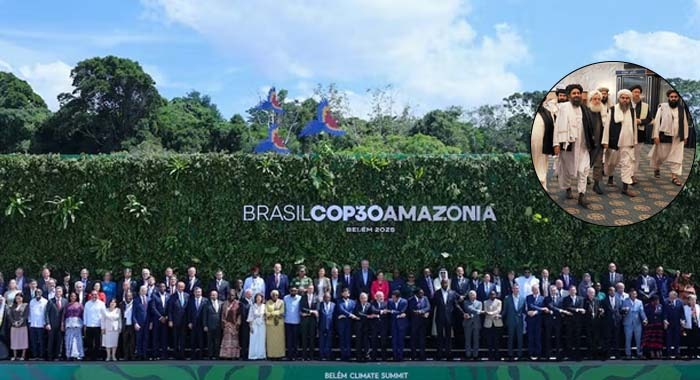The United Nations has not extended an invitation to the Taliban administration for the upcoming international climate summit in Belém, Brazil, despite Afghanistan being among the ten most climate-vulnerable countries in the world. The conference, which gathers representatives from more than 190 countries, will focus on collective strategies to address the growing global environmental crisis.
In a statement, the Taliban’s Environmental Protection Department voiced “deep concern” over being excluded, arguing that Afghanistan’s absence violates the principles of “climate justice and global cooperation.” The department claimed that it remains committed to international efforts under the UN Climate Change Convention and the Paris Agreement, noting that the country faces worsening droughts, floods, deforestation, and internal displacement due to climate change.
A Missed Voice in a Global Crisis
Afghanistan’s exclusion underscores the growing international reluctance to engage with the Taliban regime, whose lack of legitimacy, continued human rights abuses, and failure to deliver on political inclusivity have left the country diplomatically isolated. The Taliban have repeatedly pledged to uphold international obligations, including those made under the 2020 Doha Agreement and at various multilateral forums, yet their actions—particularly the systematic exclusion of women and minorities from public life—have eroded whatever trust the world community once had.
While the Taliban accuse global institutions of denying Afghanistan a platform, the root cause lies in their own inability to form an inclusive and representative government capable of credible engagement. The world, on the other hand, bears partial responsibility for not developing a viable mechanism to hold the Taliban accountable to the commitments they made in Doha and beyond. As a result, Afghanistan remains trapped between an unrecognised regime and an international order ill-equipped to enforce compliance.
Climate change, however, is not a political issue but an existential threat. Millions of Afghans already suffer the consequences of environmental degradation and resource scarcity. By keeping Afghanistan outside the world’s key climate platforms, the international community risks punishing a population already bearing the brunt of a crisis it did not create. Yet until the Taliban take meaningful steps toward inclusive governance and adherence to global norms, Afghanistan’s isolation will continue—at the expense of both its people and the planet.





